 Jeanne Mack’s journey to a 2:39 Olympic-Trials-qualifying marathon was anything but smooth. What culminated in a superb day of racing and execution for Jeanne, was preceded by injury flare-ups, a summer (read: hot and dreadfully humid) move to New York City, and a struggle to slip into that beautiful, smooth marathon training rhythm we all dream about. Looking back, these hiccups, speed bumps, and whichever other platitude you prefer, paved the way for Jeanne’s brilliant run in Chicago.
Jeanne Mack’s journey to a 2:39 Olympic-Trials-qualifying marathon was anything but smooth. What culminated in a superb day of racing and execution for Jeanne, was preceded by injury flare-ups, a summer (read: hot and dreadfully humid) move to New York City, and a struggle to slip into that beautiful, smooth marathon training rhythm we all dream about. Looking back, these hiccups, speed bumps, and whichever other platitude you prefer, paved the way for Jeanne’s brilliant run in Chicago.
About a year ago, Jeanne ran 2:45:20 at the New York City Marathon. We had begun working together in Flagstaff about six months prior to the race and really had no expectations for her first 26.2. We both knew she had gotten super fit in those months at altitude but I was avoiding putting any pressure on her to go after a Trials standard — I wanted her to put together a race that made her want to tackle the distance again. After running a few seconds over the standard, she certainly did just that. But, something I’ve learned from years of running, is it rarely gives you what you want.
The plans we concocted for the months following NYC were marred by pesky injuries. The momentum built during the previous marathon buildup wasn’t budging from that Flagstaff Fall of 2017. Plans for a spring marathon were scrapped and attention was turned towards a great build-up and race at Chicago in 2018.
Comparison and running go hand-in-hand. We compare ourselves not only to our competitors and teammates, but also our previous races, personal bests, and a gambit of other statistics. And so when Jeanne was thrown into a marathon build-up in the throes of a sticky New York City summer, I failed her when I was comparing this build-up to last fall. I think we both got stuck for a bit, questioning why some workouts weren’t clicking as they had before. In the back of my mind, I was confident in the work she was doing in the heat and humidity, but it’s so easy to become obsessed with numbers and splits, losing focus on effort and accounting for conditions.
Jeanne had a real rough few weeks where she wasn’t finishing some of her marathon specific workouts and (please, Jeanne, correct me if I’m wrong) self-doubt was creeping in. As a coach, I was putting a lot of pressure on Jeanne as I wrote workouts with specific paces. If I decided last minute to switch paces, Jeanne would question why I was slowing her paces, or cutting reps, and this caused her to face a mini-existential crisis. We talked about the issues this was causing and I suggested we focus more on effort-based workouts instead of pace-specific work. After a few weeks of more fartlek-based sessions and progression runs, Jeanne started to fall into a great rhythm.
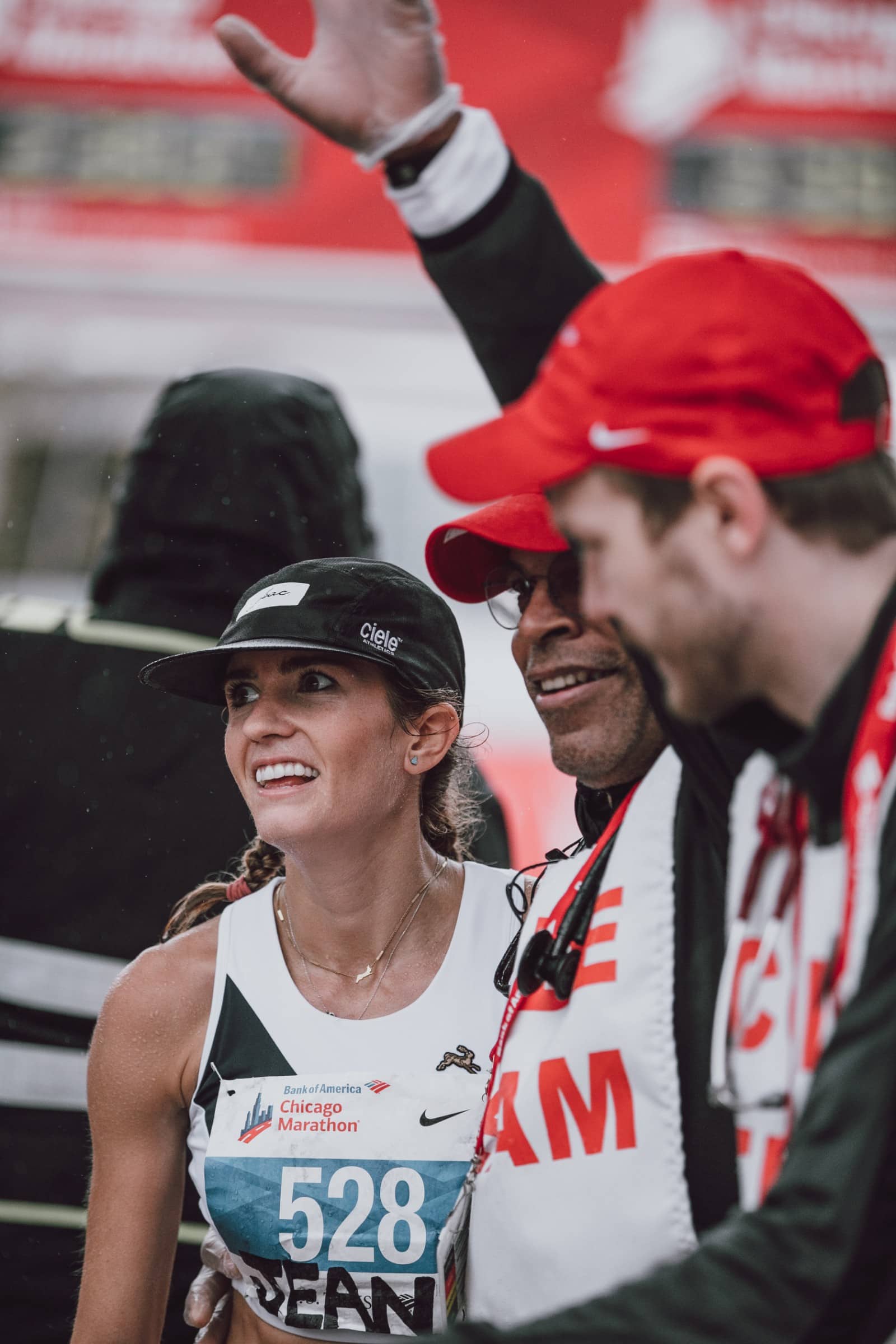
With the race only a few weeks away, my excitement about her recent training might have seemed a bit overzealous. What she might have considered too little, too late, I was thinking was right on time. While her training was slightly inconsistent over the past year, she had still accumulated months and months of running and time on her feet. Jeanne is naturally gifted at longer runs and I was confident the string of successful workouts would serve her well in her race.
The biggest turning point in this buildup was shying away from splits and paces, and, instead, realizing great fitness can be realized through a shift in mindset. The athlete I saw running through the streets of Chicago was not the athlete I was speaking with about not hitting splits six weeks prior.
Jeanne was determined to clock sub-2:40 and while maybe the math didn’t add up for her to do it, her will and belief carried her through. Though a few seconds quick, she stuck to her race plan the entire day and came away with a six-minute personal best. I’ve had the treat of watching Jeanne cross the finish line at both her marathons and both times I’ve been blown away at her willingness to completely exhaust her potential on the day. Seeing someone embody the strongest characteristics of their being is one of the greatest gifts running gives.
Stephen Kersh is a VDOT Certified Coach. He currently lives and trains in Flagstaff, AZ while pursuing his goal of qualifying for the 2020 Olympic Trials. Stephen currently coaches competitive runners in all distances on VDOT O2. You can learn more about his coaching services on the VDOT Marketplace.
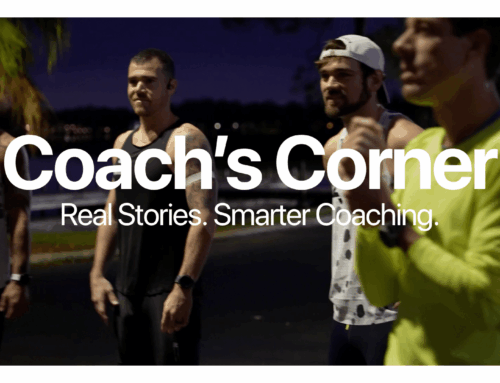
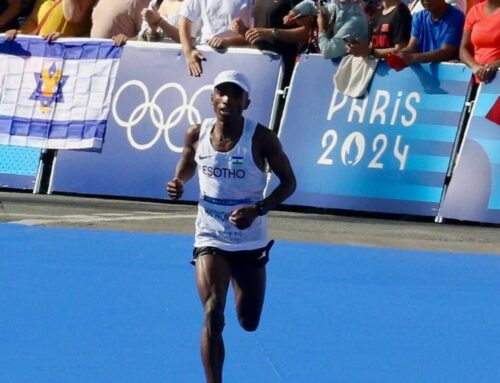
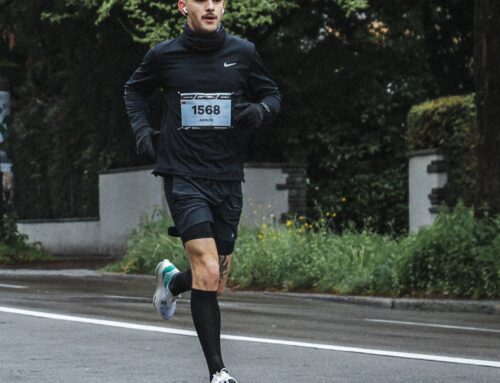
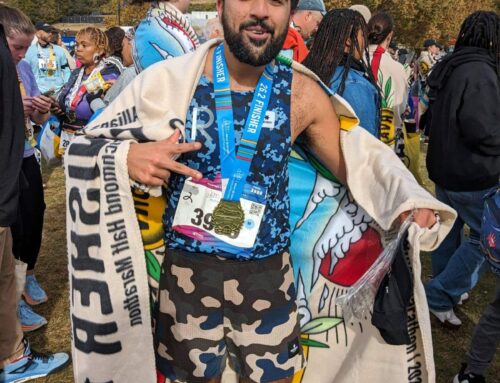
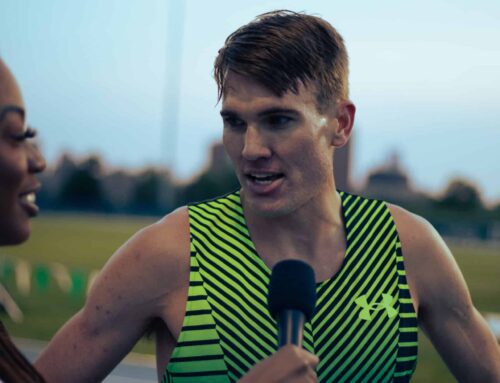
Leave A Comment